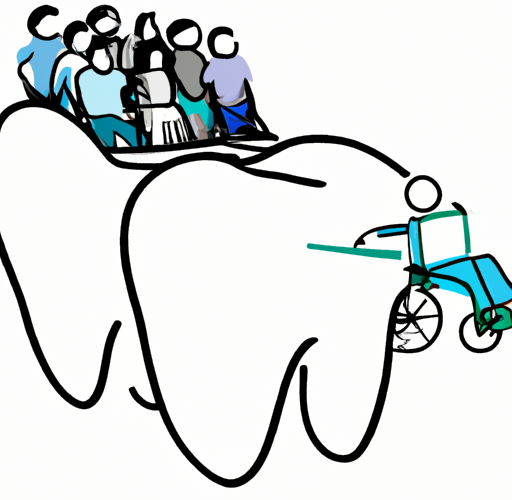Pregnancy is often seen as a joyous and exciting time in a woman’s life. However, beneath the surface of this physical transformation lies a complex web of psychological challenges that many expectant mothers face. From hormonal fluctuations to the pressures of impending motherhood, pregnancy can bring about a range of emotions that may impact a woman’s mental well-being. In this article, we will delve into the psychological aspects of pregnancy, exploring the symptoms, causes, and diagnosis of various mental health conditions that can arise during this transformative period. We will also discuss the available treatment options and the importance of seeking support to ensure the emotional well-being of both mother and child. By understanding and addressing the psychological impact of pregnancy, we can better support expectant mothers on their journey towards motherhood.
1. "Understanding the Psychological Impact of Pregnancy: Symptoms, Causes, and Diagnosis"
Pregnancy is a transformative journey that brings joy, excitement, and anticipation for many women. However, it is important to recognize that pregnancy also comes with a range of psychological changes and challenges. Understanding the psychological impact of pregnancy is crucial for ensuring the well-being of both the mother and the baby. In this section, we will delve into the symptoms, causes, and diagnosis of the psychological aspects of pregnancy.
One of the most common psychological symptoms experienced during pregnancy is mood swings. Hormonal fluctuations, physical discomfort, and the anticipation of motherhood can contribute to sudden shifts in emotions. Women may find themselves feeling elated one moment and tearful the next. These mood swings are a normal part of pregnancy and usually subside after childbirth.
Another psychological symptom that affects some pregnant women is anxiety. The fear of the unknown, concerns about the baby’s health, and worries about the upcoming responsibilities of motherhood can lead to heightened anxiety levels. It is important to differentiate between normal pregnancy-related worries and excessive anxiety that may require treatment.
Depression is also a psychological aspect of pregnancy that should not be overlooked. Pregnancy hormones can impact serotonin levels, which can contribute to the development of depression. Feelings of sadness, loss of interest in previously enjoyable activities, changes in appetite, and disturbed sleep patterns are some common signs of depression. It is crucial to identify and address depression during pregnancy as it can have negative effects on both the mother and the baby.
The causes of psychological symptoms during pregnancy are multifaceted. Hormonal changes play a significant role, as the body undergoes a variety of transformations to support the growth and development of the fetus. Additionally, factors such
2. "Navigating the Emotional Rollercoaster: Treatment Options for Psychological Challenges during Pregnancy"
Pregnancy is a transformative journey that brings about numerous physical and emotional changes in a woman’s life. While it is often portrayed as a time of joy and excitement, the reality is that pregnancy can also bring about a range of psychological challenges. Hormonal fluctuations, physical discomfort, and the anticipation of becoming a parent can all contribute to emotional turbulence during this time. It is essential to recognize and address these challenges proactively to ensure the well-being of both the mother and the unborn child.
One of the primary psychological challenges during pregnancy is mood swings. These sudden and intense changes in emotions can leave expectant mothers feeling overwhelmed and confused. It is crucial to understand that mood swings during pregnancy are entirely normal and are primarily caused by hormonal shifts in the body. However, for some women, these mood swings can become more severe and persistent, leading to conditions such as depression or anxiety.
Diagnosing psychological challenges during pregnancy requires a comprehensive evaluation by a healthcare professional. Obstetricians, gynecologists, or mental health specialists can play a crucial role in identifying and assessing the emotional well-being of expectant mothers. Screening tools and interviews may be utilized to determine the severity and impact of the psychological challenges.
Once diagnosed, it is essential to explore treatment options to support women in navigating the emotional rollercoaster of pregnancy. The ideal treatment plan will depend on the specific condition and its severity. In mild cases, non-pharmacological interventions like counseling, support groups, and lifestyle changes may be sufficient. Psychotherapy, including cognitive-behavioral therapy (CBT) and interpersonal therapy (IPT), can help women develop coping strategies, manage stress, and address
3. "Exploring the Link Between Mental Health and Pregnancy: Unveiling the Causes and Seeking Support"
Pregnancy is often portrayed as a joyful and exciting time in a woman’s life. However, it is essential to recognize that the journey of pregnancy is not always smooth sailing. There are numerous psychological aspects associated with pregnancy that can significantly impact a woman’s mental health. Understanding the causes, symptoms, diagnosis, and treatment options is crucial to provide adequate support and care for pregnant women.
The link between mental health and pregnancy is a complex one. Hormonal changes, physical discomfort, and the anticipation of motherhood can trigger a wide range of emotional and psychological responses. For some women, these changes may manifest as mild mood swings or temporary feelings of anxiety. However, for others, the impact can be more severe, leading to clinical conditions such as depression or anxiety disorders.
One of the primary causes of psychological distress during pregnancy is the hormonal fluctuations that occur. The surge in hormones, such as estrogen and progesterone, can affect neurotransmitters in the brain, potentially leading to mood swings, irritability, and emotional instability. Additionally, the physical discomforts associated with pregnancy, such as nausea, fatigue, and weight gain, can contribute to feelings of frustration and stress, further exacerbating mental health issues.
Apart from hormonal and physical factors, pregnancy can also trigger unresolved emotional issues or traumatic experiences from the past. For some women, the fear of childbirth itself can be overwhelming and cause significant distress. Previous experiences of miscarriage, stillbirth, or complicated pregnancies may also contribute to heightened anxiety and depression during subsequent pregnancies.
Recognizing the symptoms of mental health issues during pregnancy is crucial for early intervention and support. Symptoms may vary from woman to woman but can include persistent




